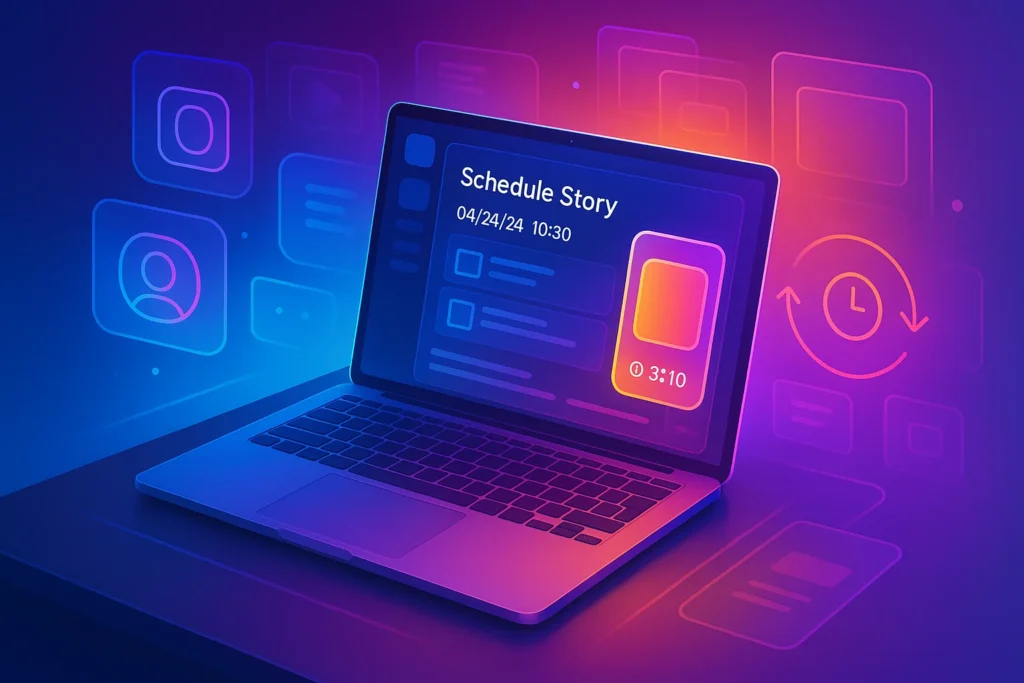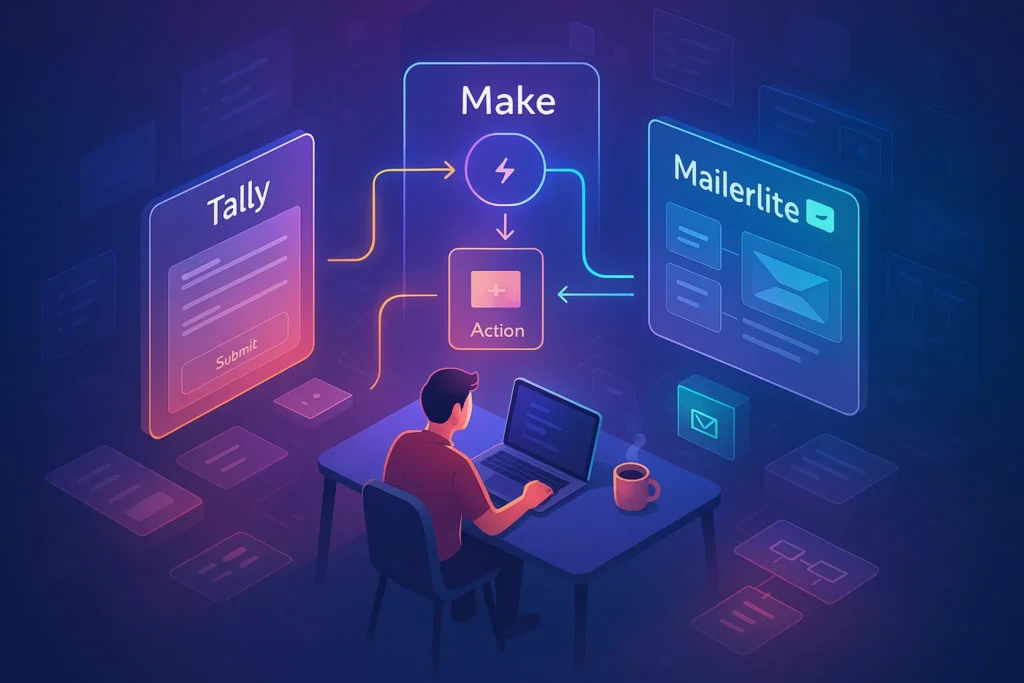Intro:
For creators, marketers, and small businesses, posting Instagram Stories consistently is one of the best ways to drive engagement. But there’s a challenge: stories disappear after 24 hours, and posting them manually every day can be a time drain. Many turn to third-party scheduling apps, but these come with risks—Instagram sometimes penalizes accounts that use unofficial tools.
The good news? Meta now provides official ways to schedule and automate Stories through Creator Studio and Business Suite. In this tutorial, you’ll learn exactly how to automate Instagram Stories without risking your account, what limitations exist, and when third-party apps might still make sense.
🚫 Why Avoid Third-Party Apps?
Third-party apps like Buffer, Hootsuite, or Later have been popular for years, but they often rely on APIs that are either limited or unofficial. This means:
-
There’s always a risk of Instagram flagging your account for suspicious activity.
-
Some apps require giving away more permissions than necessary, including your login credentials.
-
API changes by Meta can break functionality without warning.
If you’re managing a brand or personal account seriously, the safest approach is to stick with Meta’s native scheduling tools. They might not have as many features, but they guarantee security and compliance.
For marketers used to broader automation (like AI-powered workflows), it’s important to note that Instagram is far stricter than YouTube or Gmail. In fact, our guide on How to Automate YouTube Video Editing shows how open Google is compared to Meta’s walled garden. With Instagram, security and safety have to come first.
💡 If your account is valuable, don’t gamble with it—avoid shortcuts that risk bans.
🛠️ Native Tools by Meta
Meta has invested heavily in its own publishing tools. The two most reliable ways to schedule Instagram Stories today are:
-
Meta Business Suite (accessible on desktop and mobile)
This is the all-in-one hub for managing Facebook and Instagram together. It supports scheduling feed posts, ads, reels, and stories. -
Creator Studio
Once the go-to tool, Creator Studio is slowly being merged into Business Suite. Still, some users prefer it for its simpler interface.
Both allow you to upload media, add captions, select posting times, and monitor performance. Since they’re built directly by Meta, you don’t have to worry about policy violations.
For marketers exploring AI Workflow Builders like Zapier AI or n8n, note that while these can automate posting on other platforms, Instagram locks most automations behind Business Suite for security.
📝 Step-by-Step Guide: Automating Stories with Meta
Here’s a practical walkthrough to automate your Stories:
-
Access Meta Business Suite
Log in through desktop (business.facebook.com) or the mobile app. Connect your Instagram account if it isn’t already linked. -
Create a Story
From the sidebar, click Create Story. Upload your images or short videos (less than 15 seconds per slide). -
Customize Your Story
Add text overlays, stickers, or links (if your account has link-sharing enabled). While customization isn’t as rich as the Instagram app, it covers the basics. -
Schedule It
Instead of posting immediately, select Schedule and pick your preferred date and time. Business Suite lets you schedule Stories up to 75 days in advance. -
Monitor Performance
After publishing, you can track impressions, taps forward/backward, and exits—all directly in Business Suite’s analytics dashboard.
This workflow ensures you never miss a Story, whether you’re traveling, busy, or just want consistency in your content calendar.
💡 Think of your Story queue as a safety net—keeping your brand voice alive even when you’re offline.
✅ Benefits of Native Automation
Using Meta’s tools has several advantages:
-
Security: No risk of account suspension due to shady APIs.
-
Analytics Integration: Business Suite pulls performance data across posts, ads, and stories in one dashboard.
-
Free of Charge: Unlike many third-party apps that lock features behind subscriptions, Meta’s suite is completely free.
-
Reliability: Since it’s built by Meta, changes in Instagram’s backend won’t break scheduling.
If you’re running campaigns alongside email or ad automation (like How to Automate Email Follow-Ups in Gmail Using AI), Business Suite becomes the central hub where Instagram activity aligns with your broader marketing funnel.
Want More Smart Automation Tips?
Join our newsletter for weekly guides on AI tools, no-code workflows, and automation hacks that save hours every week.
100% privacy. Only proven tips—no fluff, no spam.
⚠️ Limitations of Native Tools
Of course, no tool is perfect. Meta’s solutions have clear limitations compared to third-party platforms:
-
Fewer Creative Options: Stickers, advanced filters, and interactive polls are limited compared to the Instagram app.
-
No Bulk Uploads: Unlike tools like Later, you can’t upload 30 stories at once for batch scheduling.
-
Platform Dependence: Since everything runs inside Business Suite, there’s less flexibility to integrate with external marketing workflows.
That said, for most creators and small businesses, these trade-offs are worth the safety of staying official.
For more advanced marketers, exploring Top Automation Tools for Marketers might show how third-party platforms complement, rather than replace, native solutions.
🤔 When to Consider Third-Party Apps Anyway
Third-party apps still have their place, especially if you:
-
Manage multiple clients and need bulk scheduling.
-
Want more visual calendar views.
-
Need advanced editing features before scheduling.
Platforms like Buffer, Later, and Hootsuite offer these extras, but with the caveat of cost and potential API hiccups. For many, the best practice is a hybrid strategy: rely on Meta for critical scheduling while using third-party tools for planning and brainstorming.
If you’re scaling your automation stack, check out our guide on Emerging AI Marketing Tools—where AI-powered planners help map your content across multiple channels.
⚡ Want Smarter Automation Beyond Instagram?
Explore AI-powered workflow builders to streamline your email, content, and social media scheduling. Build automation that grows with you.
🆚 Native Tools vs. Third-Party Apps: Quick Comparison
| Feature / Factor | Meta Business Suite (Native) | Third-Party Apps (Buffer, Later, Hootsuite) |
|---|---|---|
| Account Security | ✅ 100% safe (official API, no ban risk) | ⚠️ Varies, some rely on unofficial APIs |
| Scheduling Support | ✅ Stories, Posts, Reels (up to 75 days) | ✅ Stories + advanced planning tools |
| Creative Options | ❌ Limited (basic text & stickers only) | ✅ Rich editing, polls, music, advanced filters |
| Analytics & Insights | ✅ Integrated with Facebook + Instagram | ✅ Platform-specific, often more detailed |
| Cost | ✅ Free | 💲 Subscription-based (tiered pricing) |
| Bulk Uploads | ❌ Not supported | ✅ Yes, multiple stories/posts at once |
| Integration with Other Apps | ❌ Limited | ✅ Connects with marketing stacks (Zapier, CRMs) |
| Reliability | ✅ Always updated by Meta | ⚠️ Can break when Instagram changes API |
💡 If security is your top priority, stick with native. If you need advanced features and don’t mind subscriptions, third-party may win.
🧠 Nerd Verdict
The verdict is clear: if you want to stay safe and professional, stick to Meta’s built-in tools for Instagram Story automation. They may not have every feature marketers dream of, but they keep your account secure and consistent—two things that matter most in the long run.
For power users, a blended strategy (Meta tools + selective third-party apps) can deliver the best of both worlds.
❓ FAQ: Nerds Ask, We Answer
💬 Would You Bite?
If Meta gave you full creative control of Instagram Stories inside Business Suite—including polls, music, and filters—would you ditch third-party apps entirely?



